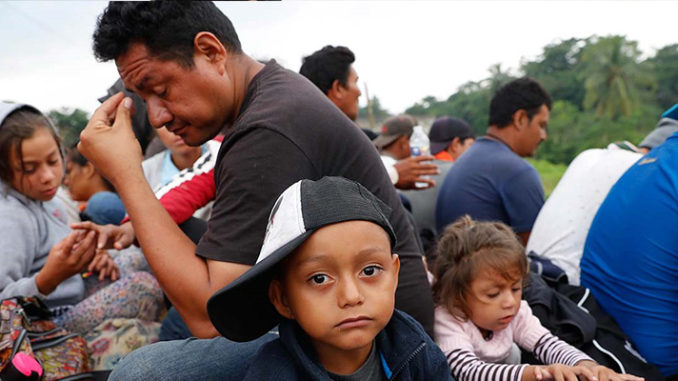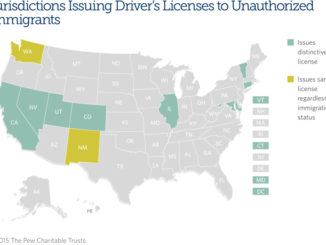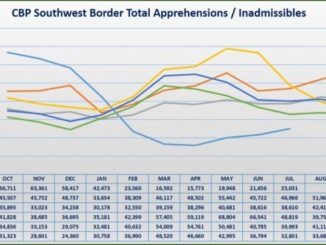
by Matthew Rooney
Watching the thousands of men, women, and children leave El Salvador, Guatemala, and Honduras in search of safety and a brighter future inspires sympathy from many Americans. For others the images on the news stir up misplaced fear that those leaving their home countries in search of a better life are intent on taking away jobs and wealth.
Regardless of the emotions, the United States needs to develop a policy response. The proximity of Central America and the presence of its communities in the United States means it impacts our own security and prosperity. An effective policy response must begin by acknowledging that Central America has been working hard to address its challenges, some of which are not of its own making, with mixed success.
For two decades, leaders in Central America built broad political consensus around a vast program of restructuring and reforming their economies. They did away with government monopolies in finance, insurance, broadcasting, and telecommunications. They have modernized their infrastructure and transportation systems through partnerships between the public and private sectors. Today, industries are thriving thanks to modern technology and direct investment.
Importantly, in 2004, they signed a trade agreement with the United States requiring them to strengthen regulatory “referees” in industries like telecommunications and energy, as well as customs services and border controls. They are moving ahead with completion of a customs union that will give entrepreneurs and farmers, as well as foreign investors, a larger market to boost prosperity by tapping economies of scale. These reforms have been hard work and require extensive negotiations with interest groups across those societies to develop political consensus.
But they have done it. The result has been a significant reduction in poverty and the beginnings of a middle class. Cell phones are widely used, internet connectivity is common, and financing is available for homes and other major purchases. American and other foreign brands of fast food, restaurants, hotel chains, and consumer goods across the board are popular and ubiquitous. The spread of comfortable residential suburbs around major cities and rush hour traffic, something that is quite common in the United States, is now becoming the norm in Central America.
But that progress is not happening fast enough. The region has highly unequal societies and poverty is a stubborn problem challenging policymakers in Central America. There is understandably a rising level of frustration in the Northern Triangle undermining public confidence in democracy and leading some to wonder if the economic market model they have been implementing for the past 20 years really can work.
Some of the reasons that progress has been disappointing is beyond the control of the governments here. They are neither producers nor major consumers of narcotics. They lack the heft to influence global prices for energy, international transportation, and products such as coffee, sugar, palm oil, and other commodities produced and sold by their countries. In all of these areas, the governments have made credible efforts to be committed partners to the United States and a showcase for how small democracies can thrive and prosper, but they cannot do it alone.
The United States government needs to build on these precepts. A starting point would be to congregate leaders from the region. The Central America Prosperity Project, a network of 30 thought leaders from across the Northern Triangle, is an example of such a group. By working directly with leaders representing a variety of professional and political backgrounds, the administration can sort through the numerous economic challenges these countries face, starting with rampant corruption and weak regulatory institutions, along with an workforce in need of training and small markets that crimp economies of scale.
The next wave of economic reforms should be supported by the United States to reduce the current constraints to growth in Central America. Targeted initiatives by Congress should use our foreign assistance funds and expertise to overcome the hurdles to success. A peaceful and prosperous Central America that offers hope and opportunity to citizens will also be a stable neighbor that helps secure the United States.
Matthew Rooney is director of economic growth at the George Bush Institute and a former career United States foreign service officer.



